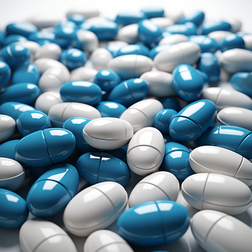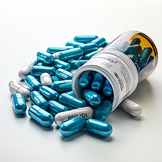Do erectile dysfunction drugs affect hair growth or loss?
- Understanding Erectile Dysfunction Drugs and Hair Growth/Loss
- Male Enhancement Pills: Sildenafil and Hair Growth
- Erectile Dysfunction Drugs as a Topical Treatment for Male Pattern Baldness
- Hair Loss Drugs: Finasteride, Dutasteride, and Their Effects on Erectile Function
- Persistent Erectile Dysfunction (PED) Following Prolonged Use of Hair Loss Drugs
- Dermal Papilla Cells and Hair Growth
- The Role of Platelet-Derived Growth Factors and Vascular Endothelial Growth Factors
- Risk Factors for PED: Beyond Prolonged Exposure to Hair Loss Drugs
- Alternatives for Hair Growth Treatments

Understanding Erectile Dysfunction Drugs and Hair Growth/Loss
Erectile dysfunction (ED) drugs, such as sildenafil (Viagra), are commonly prescribed to men who have trouble achieving or maintaining an erection. On the other hand, hair growth and loss are major concerns for many, with several medications available to address these issues. The interesting aspect lies in the intertwining relationship between these two areas, with some ED drugs having an effect on hair growth, and certain hair loss drugs impacting erectile function.
Male Enhancement Pills: Sildenafil and Hair Growth
Sildenafil, famously marketed as Viagra, is a drug primarily used for treating erectile dysfunction.
Interestingly, recent research has shown that sildenafil may also promote hair growth.
The drug works by boosting blood flow to specific areas, like the penis, facilitating erections.This principle can also apply to hair follicles, wherein increased blood flow can potentially stimulate growth and delay the process of thinning or balding.
Erectile Dysfunction Drugs as a Topical Treatment for Male Pattern Baldness
The potential of ED drugs to treat male pattern baldness is being explored, with topical applications being considered. Topically applied sildenafil, for example, is thought to work by delivering the drug directly to the hair follicles, possibly stimulating growth and slowing hair loss without causing the systemic side effects related to oral consumption.
Hair Loss Drugs: Finasteride, Dutasteride, and Their Effects on Erectile Function
While ED drugs can potentially promote hair growth, it is essential to discuss the other side of the coin - how hair loss drugs can impact erectile function. Drugs like finasteride and dutasteride are frequently prescribed for male pattern baldness. However, these medications have been linked with sexual side effects, including a reduction in sexual desire and potential erectile dysfunction.
Persistent Erectile Dysfunction (PED) Following Prolonged Use of Hair Loss Drugs
Among some young men, persistent erectile dysfunction (PED) has been observed even after discontinuing these hair loss drugs. Prolonged exposure to finasteride or dutasteride may lead to PED, wherein the individual continues to struggle with erectile function even after stopping the medication.
Dermal Papilla Cells and Hair Growth
The mechanism behind hair growth promotion by ED drugs could be related to the production of dermal papilla cells. These specialized cells sit at the base of hair follicles and play a critical role in hair formation, growth, and cycling. By boosting the function of these cells, ED drugs could potentially stimulate hair growth.
The Role of Platelet-Derived Growth Factors and Vascular Endothelial Growth Factors
ED drugs might promote hair growth by enhancing the function of platelet-derived growth factors and vascular endothelial growth factors. These proteins are involved in blood vessel formation and the growth of blood vessels from existing vasculature, which could improve blood supply to the hair follicles, leading to healthier hair growth.
Risk Factors for PED: Beyond Prolonged Exposure to Hair Loss Drugs
Aside from prolonged exposure to hair loss drugs, other factors can also increase the risk of PED. These include existing conditions like diabetes and hypertension, as well as lifestyle factors like smoking. These elements can exacerbate the negative effects of hair loss drugs on erectile function.
Alternatives for Hair Growth Treatments
Considering the potential risks associated with certain hair growth treatments, it's worth exploring alternatives. Options like minoxidil, low-level laser therapy, and certain dietary supplements may promote hair growth without negatively affecting erectile function.
In the complex nexus between erectile dysfunction drugs, hair growth, and hair loss, it's evident that there are interconnected mechanisms at play. While some ED drugs might stimulate hair growth, certain hair loss drugs could negatively affect erectile function. Recognizing these relationships is crucial for healthcare providers and patients alike when choosing the most appropriate treatment strategies. Further research is needed to fully understand these interactions and to develop safe, effective treatments for both ED and hair loss.



